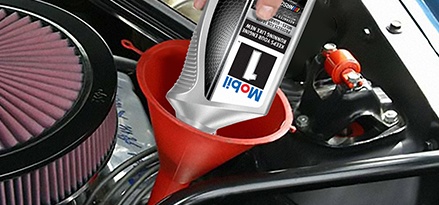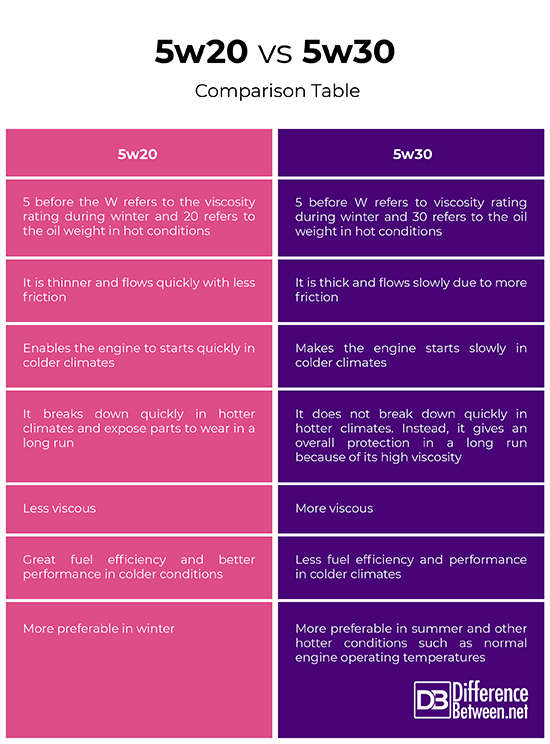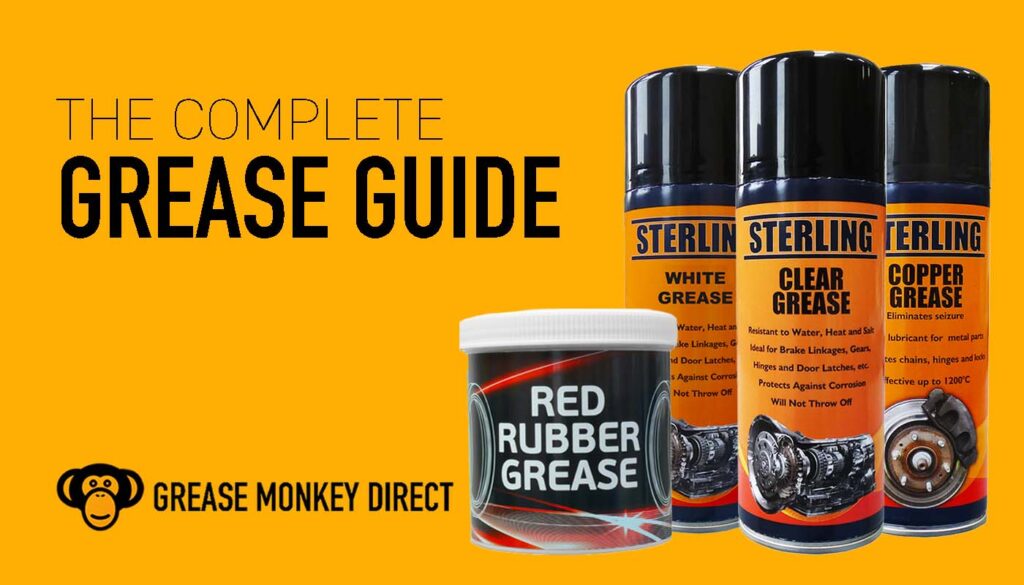Engine oil and grease in motor vehicles serve to lubricate moving parts, reducing damaging friction. This essential function extends the vehicle’s lifespan and maintains optimal performance.
Proper lubrication prevents wear and tear, ensures smooth engine operation, and helps to avoid costly repairs. Using the right type and amount of oil and grease is crucial for the overall health and efficiency of the vehicle. Regular maintenance, including oil and grease checks, can significantly impact the vehicle’s longevity and performance on the road.
Understanding the importance of engine oil and grease is fundamental for vehicle owners to ensure safe and reliable transportation. By prioritizing proper lubrication practices, drivers can enjoy a smooth and efficient driving experience.

Credit: www.amazon.com
Importance Of Engine Oil And Grease
Maximizing Performance
Engine oil and grease play a crucial role in enhancing the performance of motor vehicles by reducing damaging friction between moving parts.
Extending Lifespan
Using the right engine oil and grease can significantly extend the lifespan of your vehicle by lubricating engine parts to minimize wear and tear.

Credit: www.mobil.com
Function Of Engine Oil
Engine oil plays a crucial role in the smooth operation and longevity of motor vehicles. It is essential for lubricating engine parts, reducing friction and wear, and preventing sludge buildup. Understanding these functions of engine oil is vital for maintaining the performance and lifespan of your vehicle.
Lubricating Engine Parts
One of the primary functions of engine oil is to lubricate the various moving parts within the engine. As the engine operates, its components, such as pistons, valves, and bearings, move at high speeds and come into contact with each other. Without proper lubrication, this metal-on-metal friction can cause excessive heat and wear, leading to premature damage and decreased performance.
The engine oil creates a thin film between these moving parts, minimizing direct contact and reducing friction. This lubrication ensures that the components can move smoothly and efficiently, improving overall engine performance and extending the lifespan of the motor vehicle.
Reducing Friction and Wear
Friction is often considered the enemy of engine performance, as it wastes energy and generates heat. Therefore, another crucial function of engine oil is to reduce friction and wear within the engine. By maintaining a thin and consistent layer of oil between the moving parts, the oil acts as a protective barrier, reducing the frictional forces that occur during operation.
This reduction in friction not only improves the efficiency of the engine but also helps to prevent excessive wear on the components. With less friction, the engine parts experience less stress, minimizing the likelihood of premature failure or breakdown. Regularly changing the engine oil ensures that this protective layer is preserved, safeguarding the engine against unnecessary wear and tear.
Preventing Sludge Buildup
Over time, contaminants, such as dirt, particles, and residues, can accumulate within the engine, leading to the formation of sludge. Sludge is a thick and sticky substance that can clog the narrow oil passages, restricting the flow of oil and impairing lubrication. This buildup not only hinders the oil’s ability to reach the crucial engine components but also promotes increased friction and heat.
One vital function of engine oil is to prevent sludge buildup by effectively trapping and suspending these contaminants. The oil contains additives that help disperse and hold these particles in suspension, preventing them from settling and creating sludge. By regularly changing the oil and using high-quality lubricants, you can ensure that sludge buildup is minimized, and engine performance is maintained.
In conclusion, the function of engine oil in motor vehicles goes beyond mere lubrication. It acts as a protective layer, reducing friction, preventing wear, and inhibiting sludge buildup. By understanding and appreciating the importance of engine oil, you can ensure that your motor vehicle operates smoothly, efficiently, and remains in optimal condition for a longer period.
Importance Of Proper Lubrication
One of the most crucial aspects of maintaining a motor vehicle is ensuring proper lubrication. Lubrication is the process of reducing friction between moving parts, and engine oil and grease play a vital role in this. From minimizing power loss to preventing engine breakdown and reducing foaming, the importance of proper lubrication cannot be overstated.
Minimizing Power Loss
When engine components rub against each other, friction occurs, resulting in power loss and decreased efficiency. By applying engine oil and grease, a protective layer is formed, reducing metal-to-metal contact and minimizing power loss. This ensures that the engine operates smoothly, providing optimal performance.
Preventing Engine Breakdown
One of the main reasons for engine breakdowns is excessive wear and tear caused by friction. Without proper lubrication, the moving parts within the engine can become damaged, resulting in malfunctions and breakdowns. Engine oil and grease act as a shield, creating a barrier that prevents direct contact between components and reduces the risk of engine failure.
Reducing Foaming
Foaming can occur within the engine due to high temperatures and the rapid movement of oil. This can lead to inefficient lubrication and result in engine damage over time. By using the right type and quality of engine oil, foaming can be minimized, ensuring optimal lubrication and extending the lifespan of the engine.
In conclusion, proper lubrication is of the utmost importance when it comes to maintaining motor vehicles. By minimizing power loss, preventing engine breakdown, and reducing foaming, engine oil and grease protect vital components, ensuring smooth operation and prolonging the lifespan of the vehicle.
Differences Between Oil and Grease
In motor vehicles, engine oil lubricates moving parts to reduce friction and wear. Conversely, grease prevents metal-on-metal contact to protect equipment from damage and is tailored to different equipment functions and environments. Read for Details
Basic Functions
Oil and grease serve the primary functions of preventing metal-on-metal contact and protecting equipment from wear.
Application In Motor Vehicles
Engine oil lubricates moving parts in the engine to reduce friction and wear. It also prevents the buildup of sludge that can clog oil passages.
Effects Of Using Grease in Engine
Using grease in your vehicle’s engine can have several effects, both positive and negative. Let’s take a closer look at some of the potential effects of using grease in an engine.
Potential Engine Seizure
One of the potential negative effects of using grease in an engine is the risk of engine seizures. When grease is used in the wrong areas or in excessive amounts, it can solidify and accumulate in the engine, causing blockages and hindering the movement of critical components. This can lead to an engine seizure, where the engine comes to a sudden halt and stops functioning.
In order to prevent engine seizures, it is important to use the right type and amount of grease in the engine, according to the manufacturer’s recommendations. Regular maintenance and inspections can also help detect any grease buildup or blockages early on.
Deterioration Of Engine Performance
Using grease inappropriately can also lead to a deterioration in engine performance. Grease is thicker and stickier than engine oil and using it where oil is supposed to be used can hinder the smooth movement of engine components. This can result in increased friction, reduced performance, and even potential damage to the engine.
It is crucial to follow the manufacturer’s guidelines and use grease only in the areas specified. This ensures that the engine’s moving parts are properly lubricated with the right type of lubricant, allowing for optimal performance and longevity.
Potential Contamination
| Type of Grease | Application | Compatibility |
|---|---|---|
| Calcium-Based Grease | Chassis components, wheel bearings | Not compatible with water |
| Lithium-Based Grease | High-temperature applications, bearings | Compatible with most greases |
| Polyurea Grease | Electric motor bearings, automotive applications | Compatible with certain greases |
| Aluminum Complex Grease | High-temperature, heavy-duty applications | Compatible with most greases |
Additionally, using incompatible grease in the engine can cause contamination. Greases can have different chemical compositions and properties, and when two incompatible greases come into contact, they can react and form harmful substances.
To avoid potential contamination, it is important to use the right type of grease that is compatible with the existing grease or oil in the engine. This ensures that the lubricant remains pure and free from any harmful reactions that could affect the engine’s performance and longevity.
Overall, while grease can be beneficial in certain areas of the engine, it is important to use it properly and in accordance with the manufacturer’s guidelines. This helps prevent potential negative effects such as engine seizures, deterioration of performance, and contamination.
Remember: Regular maintenance, inspections, and using the right type and amount of grease are key to ensuring your engine operates smoothly and efficiently.
Optimal Oil Selection
The optimal selection of engine oil plays a crucial role in maximizing the performance and longevity of motor vehicles. Engine oil and grease are vital components that offer lubrication, protection, and enhancement to a vehicle’s engine. By matching the engine requirements and enhancing fuel combustion, the right choice of oil ensures smooth functioning and minimizes wear and tear. In this section, we will explore the importance of optimal oil selection and its impact on engine performance.
Matching Engine Requirements
Choosing the right engine oil requires understanding the unique specifications and requirements of a motor vehicle’s engine. Each engine has its own set of tolerances and operating conditions, which is why it is crucial to select an oil that matches these specifications. Several factors influence the choice of oil, including viscosity, additives, and the recommended oil change intervals.
The viscosity of the oil determines its ability to flow and lubricate the engine components effectively. Higher viscosity oils are suitable for engines operating at higher temperatures or under heavy loads, while lower viscosity oils are suitable for colder climates or newer engines with tighter tolerances. It is essential to consult the vehicle manufacturer’s recommendations or refer to the owner’s manual to ensure the oil viscosity matches the engine’s requirements.
Enhancing Fuel Combustion
In addition to lubricating the engine components, engine oil also plays a role in enhancing fuel combustion. The right oil selection can optimize the fuel combustion process, leading to improved fuel efficiency and reduced emissions. High-quality oils contain additives that help keep the engine clean and reduce deposits that can hinder the combustion process.
Moreover, oils with low volatility and high thermal stability can withstand high temperatures and prevent oil breakdown, ensuring efficient combustion throughout the engine’s operating range. This, in turn, leads to better overall performance and fuel economy, benefiting both the vehicle and the environment.
In summary, optimal oil selection is crucial for the smooth functioning of a motor vehicle’s engine. By matching the engine’s requirements and enhancing fuel combustion, the right choice of oil ensures efficient lubrication, reduced friction, and improved overall performance. It is important to consider factors like viscosity, additives, and the manufacturer’s recommendations when selecting the most suitable oil for your vehicle. Taking the time to understand your engine’s needs and choosing the right oil can result in a longer lasting and more efficient motor vehicle.
Common Misconceptions
Some people believe that using grease instead of oil in motor vehicles is a suitable alternative. However, this is a common misconception.
- Grease is formulated with a thicker consistency than oil, making it unsuitable for the intricate mechanisms of an engine.
- Grease does not flow as freely as oil, leading to inadequate lubrication and potential damage to engine components.
Lubricating Method
Engine oil is specifically designed to provide proper lubrication to the moving parts of a motor vehicle. Grease cannot effectively fulfill this function due to its composition.
Effects On Engine Performance
Using grease instead of oil can result in increased friction and wear on the engine, ultimately compromising its performance and longevity.

Credit: www.amazon.com
Frequently Asked Questions on The Use of Engine Oil and Grease in Motor Vehicles Is To
What Is the Purpose of Oil or Grease in the Engine?
Engine oil or grease lubricates engine parts, reducing damaging friction and preventing wear. Low oil levels can decrease vehicle lifespan. Clean oil prevents sludge buildup and clogging of engine oil passages.
What is the Purpose of Oil and Grease?
The purpose of oil and grease is to lubricate engine parts, reducing friction and wear. It prevents metal-on-metal contact and protects equipment. Lubricating oils reduce friction, heat, and wear between mechanical components. Grease and oil maintain a protective film, supporting loads and separating surfaces.
This is vital for prolonging the life of motor vehicles.
Which of the Following is a Reason for Using Engine Oil and Grease in Motor Vehicles?
Engine oil and grease are used in motor vehicles for lubricating engine parts to reduce friction and wear.
What Is the Use of Lubrication Oil in Engines?
Engine lubrication oil is used in engines to reduce friction, heat, and wear between mechanical components. It lubricates the engine’s moving parts, preventing metal-on-metal contact and reducing damage to the engine. Additionally, lubricating oil helps to prevent the buildup of sludge in the engine, optimizing its performance and extending its lifespan.
Conclusion
In essence, the use of engine oil and grease in motor vehicles is crucial for lubrication, reducing friction, and protecting vital components against wear and tear. Neglecting proper lubrication can shorten your vehicle’s lifespan. Choose the right grease and oil for optimal engine performance and longevity.
Prioritize maintenance for a smooth ride.


